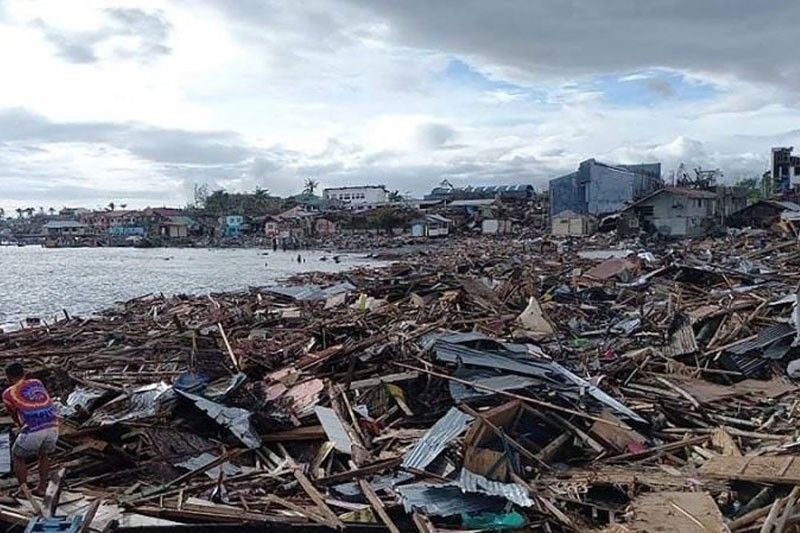Typhoon-devastated Filipinos are vulnerable to trafficking — UN report

MANILA, Philippines — Cases of human trafficking in the Philippines spiked after major typhoons wiped out local communities’ agricultural industries, making the country a striking case study globally of how climate-induced income losses can lead to trafficking.
This was mentioned in a United Nations Office on Drugs and Crime (UNODC) report 2022 released last January 24 that described the emerging connection between the climate crisis and the increased displacement in regions prone to harsh weather events.
The report described the situation in the Philippines, along in Bangladesh, Ghana and the Caribbean Islands, as an example of how “weather-induced natural disasters can expose communities reliant on fishing, farming and agriculture to higher risk of trafficking.”
“The widespread and intensifying impacts of climate change are heightening vulnerabilities to trafficking in persons,” the report stated.
“Rising and shifting temperatures and weather patterns are disproportionally affecting poor communities relying on the primary economic sector, including agriculture and the extraction of natural resources.”
UNODC’s study provided a “global picture of the patterns and flows of trafficking” based on an analysis of trafficking cases in 141 countries.
The study found that climate-related disasters have doubled in frequency, leading to “loss of livelihoods and increasing displacement” of 23.7 million people in 2021 alone.
“Economic hardship and other challenges put more people at direct risk of being trafficked while increasing the incentives for others to engage in trafficking activities,” the report added.
The UNODC study also warned that “as regions of the world become increasingly uninhabitable, people on the move will face high risk of exploitation along migration routes.”
Typhoons in the Philippines
The report cited the devastation left by Typhoon Yolanda (internationally known as Haiyan), one of the strongest typhoons in the world, on the more than four million people in the Eastern Visayas region in 2013.
Aside from the thousands of families it displaced, the typhoon also destroyed the local agricultural and fishing industries that many families below the poverty line relied on for income. A typhoon that lasted for nine days led to 21,000 families losing their livelihoods, which made them vulnerable to traffickers.
The report stated: “Between 2013 and 2015, national authorities recorded about 670 cases of trafficking in persons in the regions affected by the typhoon alone, and key informants in government and NGOs reported that these cases increased after the disaster.”
A similar level of destruction took place when Typhoon Odette (internationally known as Typhoon Rai) displaced more than 590,000 people in several provinces in the country in 2021
UNODC estimated that about 216 million people would migrate within their own countries by 2050 “due to slow-onset climate change impacts.” These refer to climate-related events that happen over a period of time, such as sea level rise, forest degradation and loss of biodiversity, among others.
UNODC observed a dramatic reduction in the number of detected human trafficking victims in 2020, the peak of the COVID-19 pandemic, due to restrictions on mobility.
While cases of human trafficking picked up again by 2021 in Europe and the Americas, some countries in Southeast Asia detected a lower number of trafficking cases in 2021.
- Latest
- Trending

































